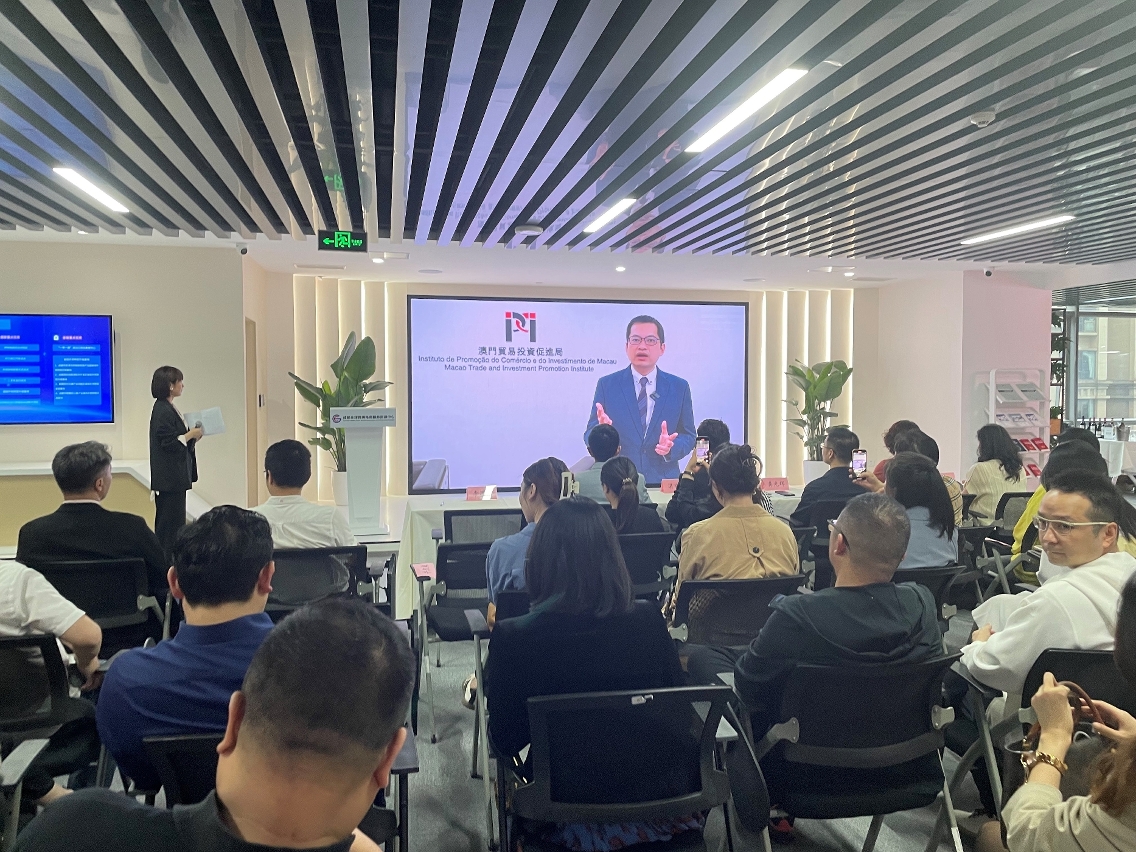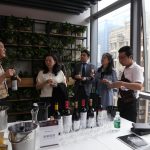 “Business Matching Sessions for Portuguese-speaking Countries’ Wine (Chengdu Station)” is held during the 108th CFDF
“Business Matching Sessions for Portuguese-speaking Countries’ Wine (Chengdu Station)” is held during the 108th CFDF
The Macao Trade and Investment Promotion Institute (IPIM) and the Chengdu Municipal Bureau of Commerce teamed up to launch the “Business Matching Sessions for Portuguese-speaking Countries’ Wine (Chengdu Station)” yesterday (13 April) at the 108th China Food & Drinks Fair (CFDF). This event successfully assists Macao enterprises in expanding the wine market in southwest China by leveraging Macao’s role as a distribution centre of Portuguese-speaking Countries’ food products.
As one of the oldest large professional exhibitions in China, CFDF, started in 1955, is held twice a year in spring and autumn, with each fair attracting approximately 3,000 corporate exhibitors and 150,000 buyers on average. CFDF, famed as the barometer of China’s food industry, is a large exhibition with a long history and a far-reaching influence in China’s food and wine industry.
The “Business Matching Sessions for Portuguese-speaking Countries’ Wine (Chengdu Station)” attracted a total of more than 40 participating enterprises from the Mainland and Macao, facilitating 140 business matching sessions and ten letters of intent to purchase involving trade, catering, supermarket, and other sectors. This event won the recognition of the participants from both Macao and Chengdu. They believed that it will further promote and introduce the products of Portuguese-speaking Countries, and assist in marketing wine products of Portuguese-speaking Countries in southwest China.
Macao exhibitors: promoting trade via CFDF
According to a Macao exhibitor: Chengdu is a city with high spending power. Taking the opportunity of the 108th CFDF in Chengdu, this event functions as a platform for Macao enterprises to have business negotiations with more Mainland enterprises. Through face-to-face communication, it helps improve the reputation of wine products of Portuguese-speaking Countries by making on-site introduction to Mainland enterprises. Currently, some orders have been placed and initial co-operation deals have been made with the Mainland enterprises, which will help further market their products in the Mainland.
Mainland purchasers: better enriching the variety of imported wine products
A Mainland buyer reported: During CFDF, he had an in-depth understanding of the potential of the Portuguese-speaking Countries products and the good price and quality of Portuguese wine products. In view of the high spending power of Chengdu and the southwest of China, he believed that wine products from Portuguese-speaking Countries with unique tastes will be competitive in Chengdu and even the whole Mainland market. Preliminary co-operation has been proposed with Macao enterprises who engaged in the trade of Portuguese-speaking Countries products.
In addition, IPIM also fully leveragedthe local advantages of its Chengdu Representative Office toorganise local business associations and target enterprisesto participate in this event. The Chengdu Representative Office pro-actively invited the Mainland business institutions and enterprises in an effort to promote the economic and trade co-operation between Chengdu and Macaoininvestment and MICE industry. Since 2021, the Chengdu Representative Office has followed up 35 mutualinvestment projects, of which 6 projects have been successfully concluded, covering the various sectors including environmental protection technology, culture and entertainment, as well as catering. Furthermore, 16 bilateral agreements have been signed.




